Text
youtube
0 notes
Text
1 note
·
View note
Text
0 notes
Text
0 notes
Text
0 notes
Text
0 notes
Text
Faculty 21 Questions
Dr. Ernesto Lira de la Rosa chats with us about identity development, his best celebrity sighting, and his course preparation for our advanced certificate in LGBTQ Health, Education, and Social Sciences. Watch now ⬇️
youtube
0 notes
Text
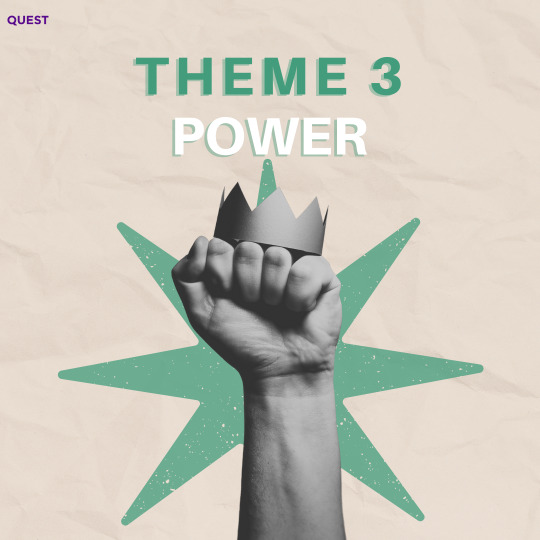
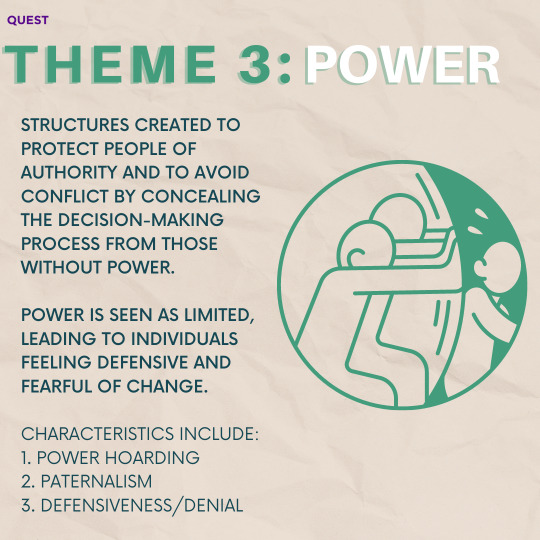
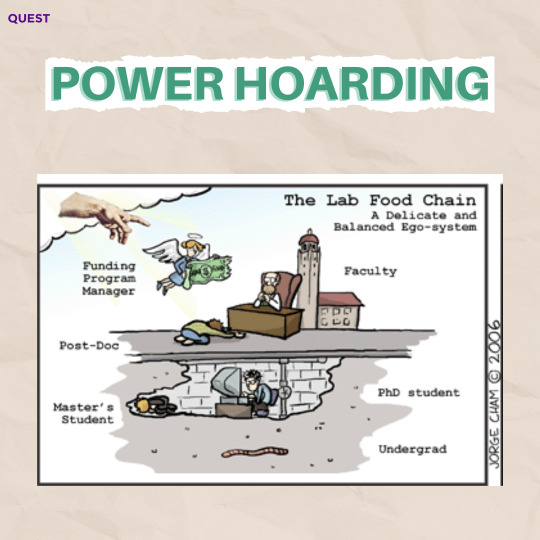

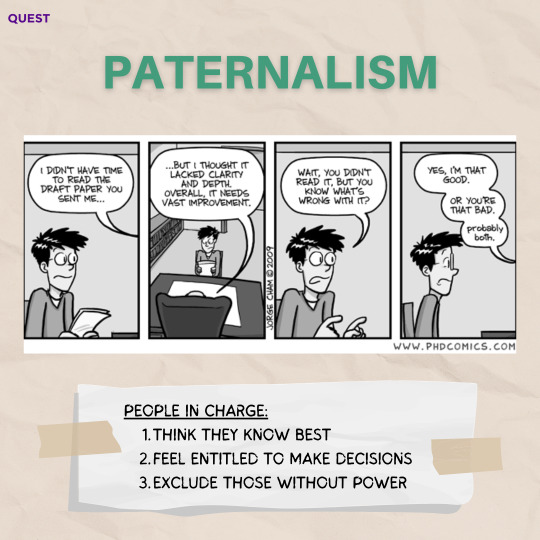
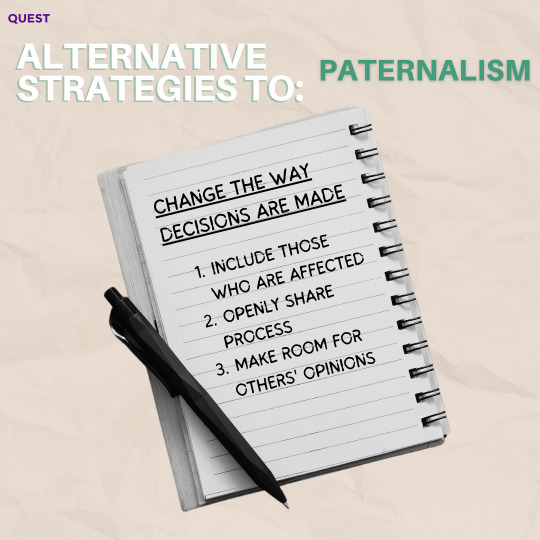
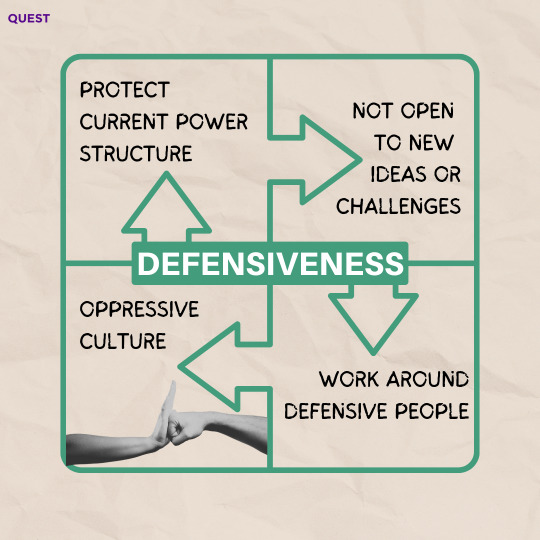
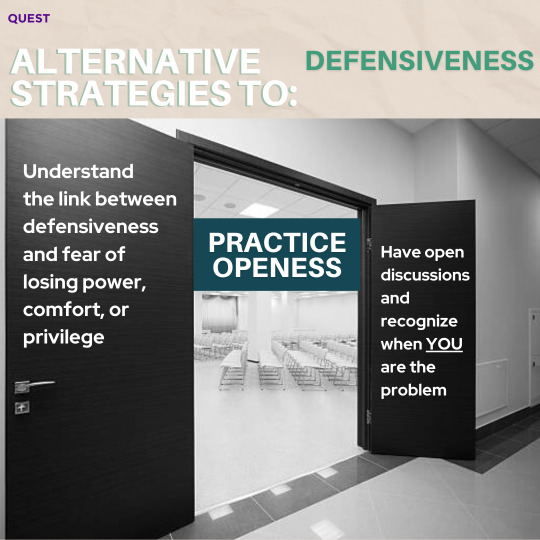
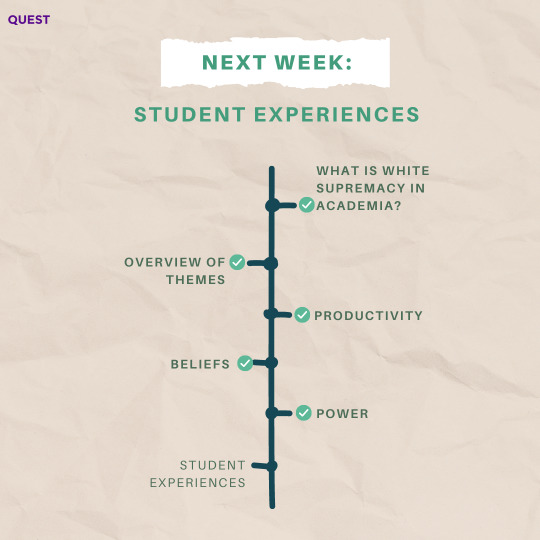
Our final theme of White Supremacy in Academia is Power. The following characteristics protect and reinforce existing power structures in academia.
The idea that power is limited leads to power hoarding, in which those with power feel threatened when anyone suggests changes in how things should be done. They assume they have the best interests of the organization at heart and that those wanting change are ill-informed, emotional, or inexperienced.
Paternalism refers to those with power thinking they are capable of making decisions without understanding the viewpoint or experience of those for whom they are making decisions. Meanwhile, those without power have no knowledge of how decisions get made and who makes them, but they are completely familiar with the impact of those decisions.
Finally, when organizational structures are set up to protect power as it exists, when people respond to new or challenging ideas with defensiveness, and when a lot of energy in the organization is spent trying to make sure that people’s feelings aren’t getting hurt or working around defensive people, this defensiveness creates an oppressive culture.
Alternative practices include prioritizing power sharing, naming defensiveness, and welcoming challenge and change.
Next week, we’ll be sharing student experiences, and we’d love to hear from you. Of all of the themes and characteristics we’ve covered throughout this campaign, which ones do you think are most prevalent in academia?
0 notes
Text

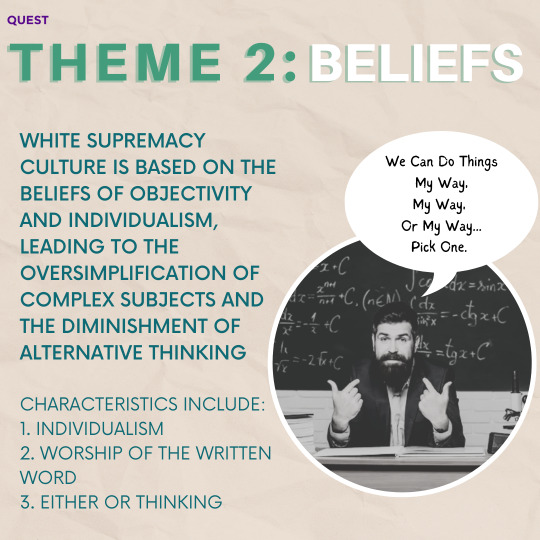

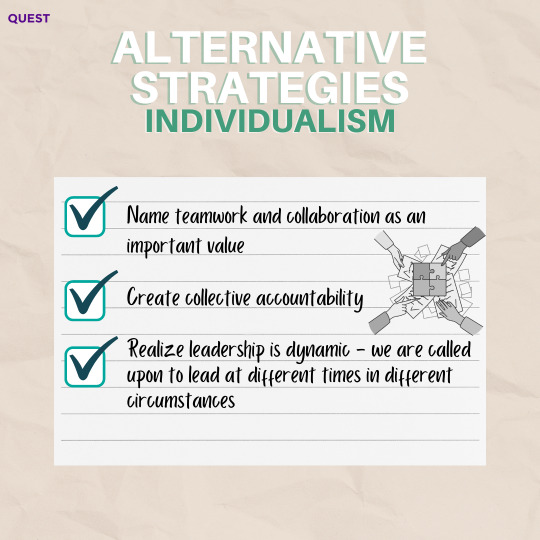

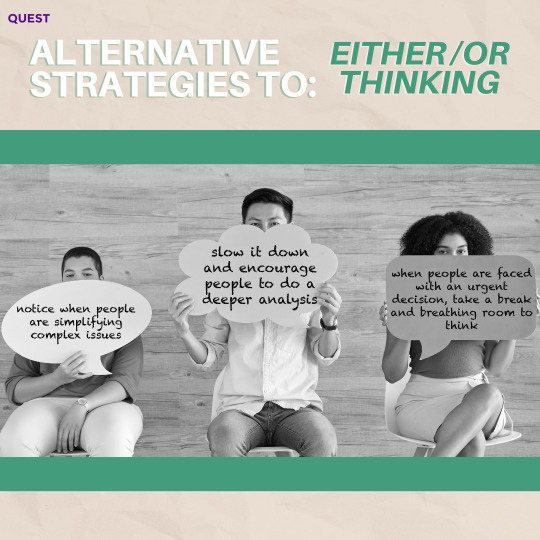

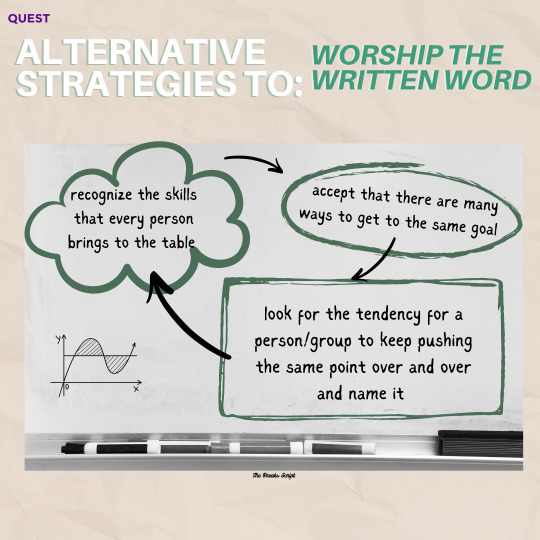
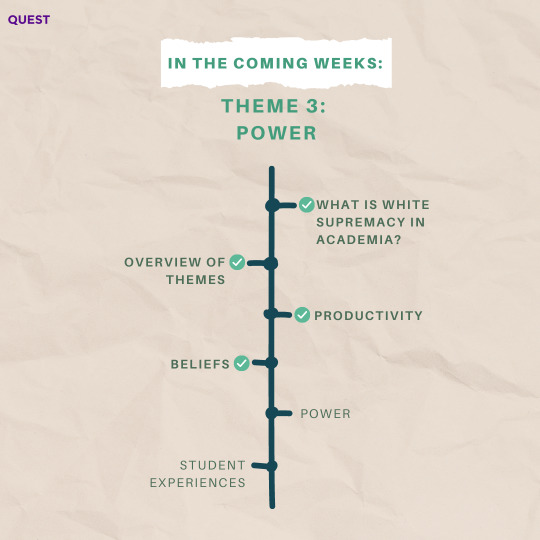
"White supremacy culture trains us all to internalize attitudes and behaviors that do not serve any of us," (Okun, 2022).
We are all susceptible to internalizing these beliefs, including and especially in the academic realm.
Individualism is the belief that we pull ourselves up by our bootstraps and make it on our own, without help. This is fueled by the desire for individual recognition, but can result in isolation, micromanagement, and a lack of accountability.
Either/or thinking simplifies complex and nuanced issues into a binary that leaves no room for creative problem-solving or new perspectives.
Worship of the written word refers to the habit of honoring only what is written and erasing the wide range of ways in which we communicate.
By using alternative strategies, such as the ones we've listed above, we can begin to reject the beliefs that do not serve us and redefine professionalism and success for ourselves. ✨
Hit the link in bio to read on this topic in more detail on Okun's website (and for full alt text) 🔗
0 notes
Text
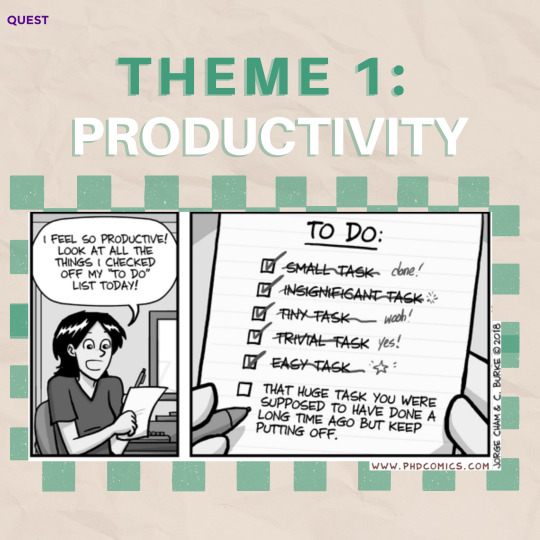
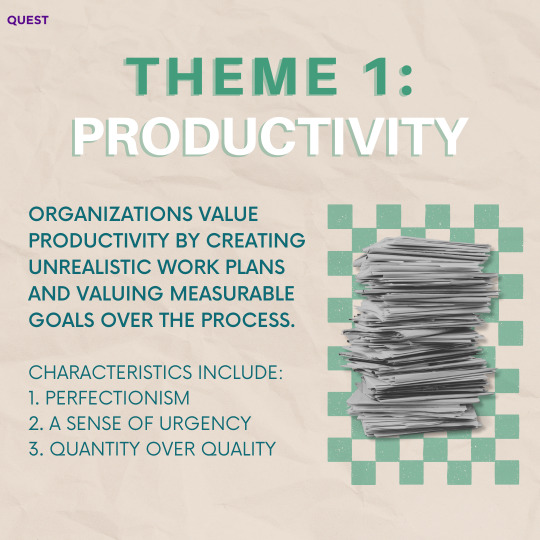
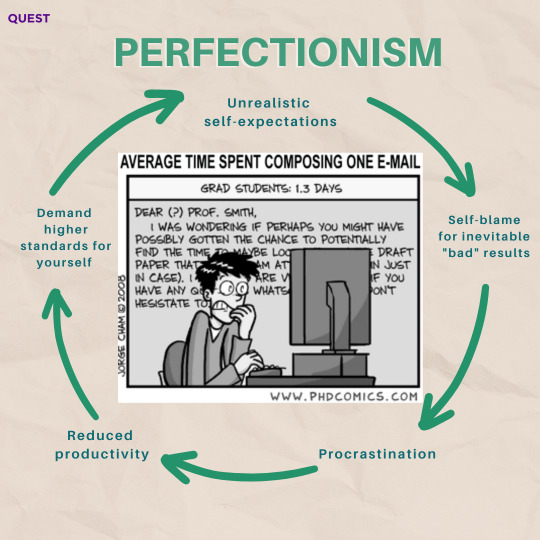
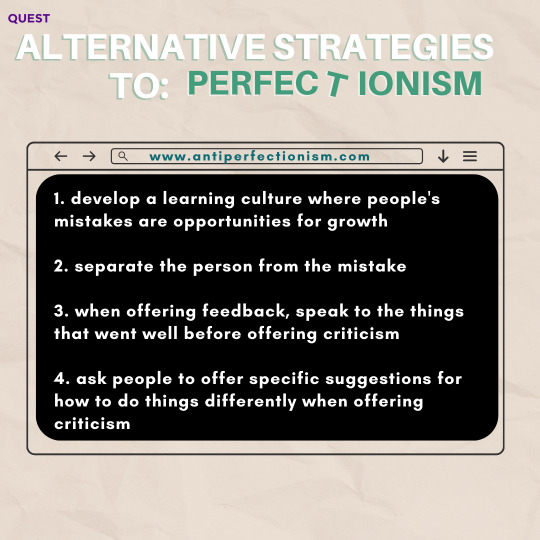
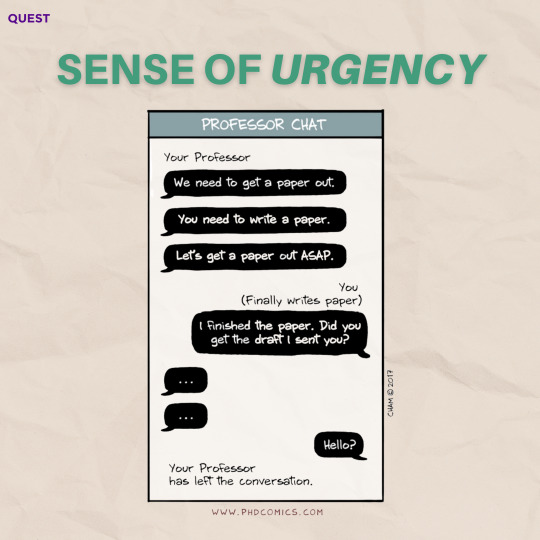
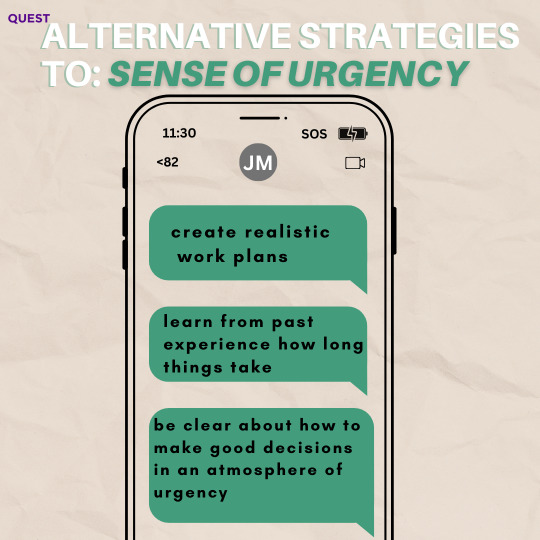
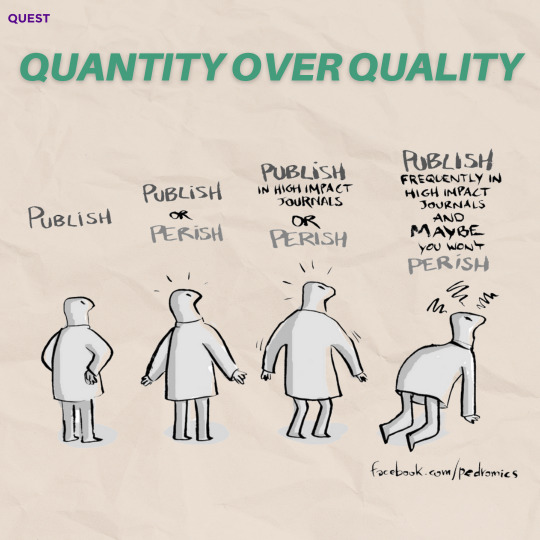
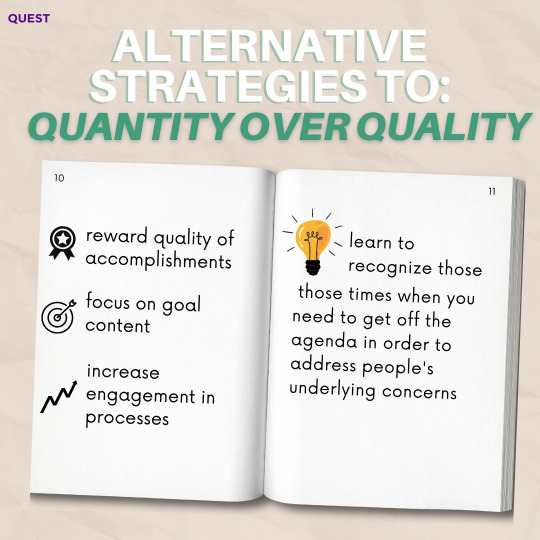
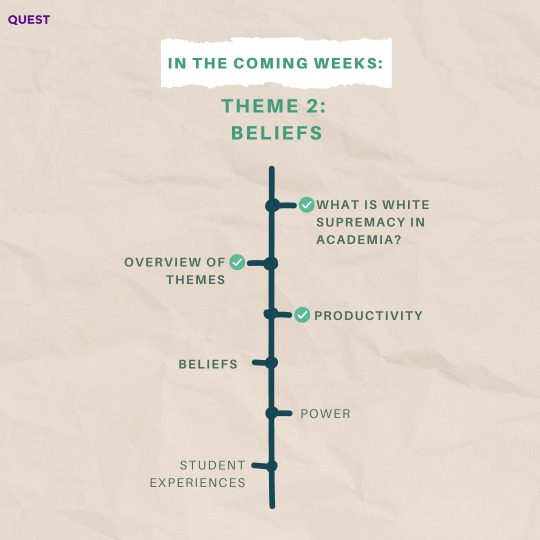
Do you find that none of your work ever feels good enough to submit? Or are you hyper-focused on putting out as much work as possible at the expense of quality and even your own well-being? These are symptoms of white supremacy as it shows up in academia.
Overvaluing productivity through perfectionism, a sense of urgency, and a quantity-over-quality mindset make it difficult to foster inclusive, thoughtful, and democratic academic environments.
Perfectionism means that mistakes are often attributed to personal inadequacy rather than opportunities for improvement, leading to a lack of reflection and learning.
A persistent sense of urgency often leads to a lack of inclusivity and democratic decision-making, which can result in sacrificing potential allies, including communities of color, in favor of quick, visible results prioritizing white people as the default community.
In many academic institutions, measurable goals (quantity) take priority over intangible ones (quality), resulting in resources being directed toward achieving them, even when they conflict with the process and the need for individuals to be heard and engaged.
While these institutional problems won’t be solved overnight, the strategies listed in this post can help us to combat their impact.
Check the link in bio for more information on White Supremacy Culture and its antidotes (Okun, 1999).
0 notes
Text
Our 21 Questions with Clinical Assistant Professor Ernesto Lira de la Rosa comes out next week. Get a sneak peek now on YouTube Shorts!
0 notes
Text
youtube
Clinical Assistant Professor Karthik Gunnia talks about his private practice, what he loves about teaching, and who would be first his first guest if he had a talk show in the latest Faculty 21 Questions!
0 notes
Text
We interviewed the Director of Clinical Training in our Counseling Psychology doctoral program, Dr. Karthik Gunnia ✨
Get a sneak peek at our 21 Questions, coming out on Tuesday:
0 notes
Text
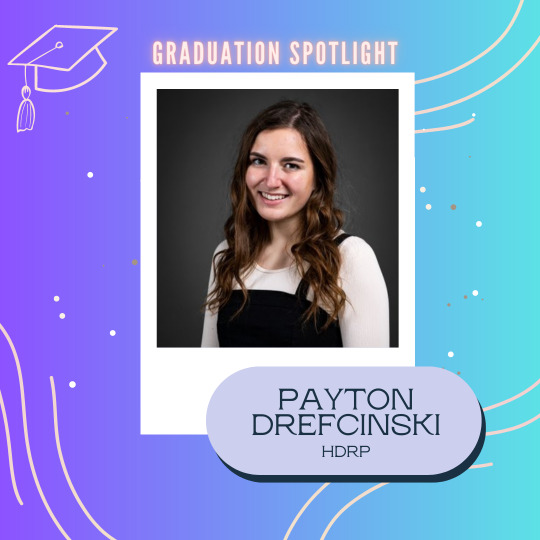



Grad Payton Drefcinski (HDRP) is looking forward to moving back to NYC in July, and is currently interviewing for job opportunities and reviewing offers!
Congratulations, Payton!
0 notes
Text


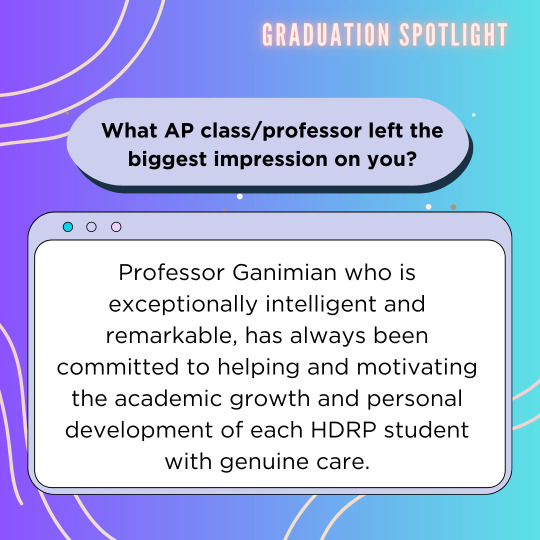

Grad Ruiting Shen (HDRP) will be working with the Lab for the Developing Mind at NYU and at the Dept. of Applied Psychology supervised by Prof. Ganimian.
Congrats, Ruiting!
0 notes
Text

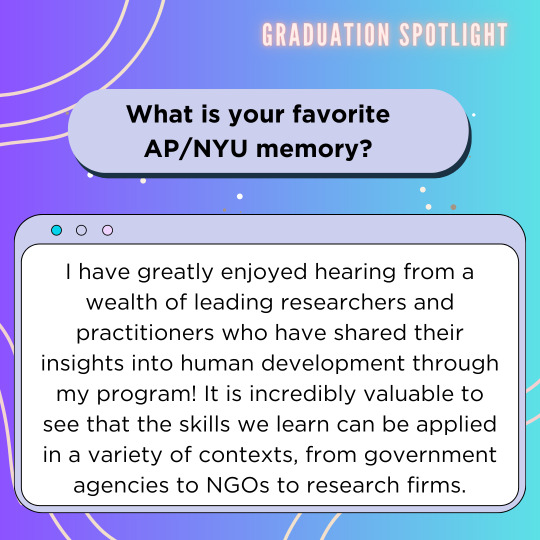
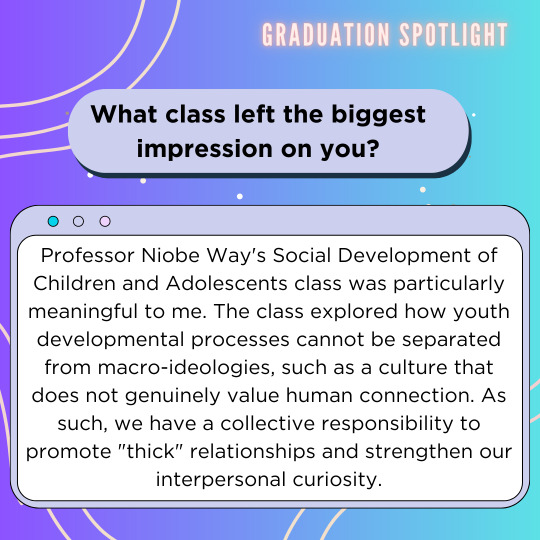
Congratulations to grad Henry Zhu (HDRP)!
More on our new HDRP program: bit.ly/453ymYH
0 notes